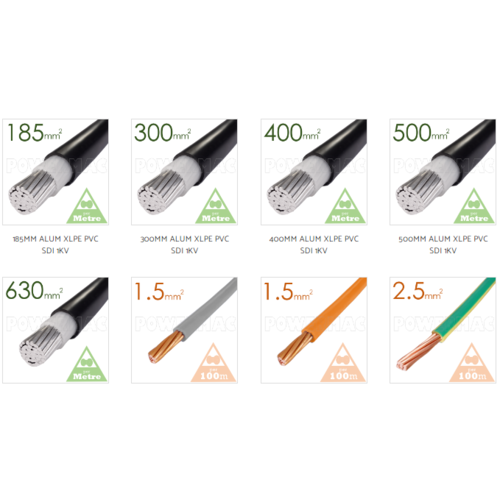How do Industrial Cables differ from Commercial Cables? 5 Important Tests to Ensure Quality

Modern day industries are based on heavy automation, instrumentation, and control data communication where no space of error and no power failure is desired. A little failure in the production line may cause heavy losses to the companies and hinder them from meeting the delivery deadline. This all depends on the cable network that continuously supports the power supply and communication between the machine and the process control devices.
To ensure the machines give maximum production, zero downtime is what is important. The cost to repair/replace any failure to the network or the cabling system is fractional as compared to the loss incurred due to the failure in production. So, hardly any industry will take this chance by using cables that don’t meet the industry standards.
Having this in mind, now let’s understand what are the important tests industrial cables go through before being labeled as industrial grade. There are various types of cables available in the market today from various manufacturers and suppliers but broadly they are of two types such as 1) Commercial grade and 2) Industrial grade cables.
5 Important Tests for Industrial Cables:
- Cable Insulation Test: A portion of the cable drum is to be scratched about 25 to 30 times through its circumference, you will find the outer jacket of the commercial cable breaks exposing the conductor within. This may compromise the mechanical and electrical strength of the cables. But the real quality commercial cables will withstand this test without any concession.
- Cable Cold Bending Test: The sample of the cable is left inside a cold box for an hour with controlled temperature and humidity conditions before the test is being performed. Once the pre-conditioning of the sample is done, it is wound over a metal bar of 3 inches diameter and one end of the cable is kept under tension with the help of aluminium weights at different temperatures at -80°C, -60°C, and -40°C. Then the cable is unrolled and manually checked for cracks that might appear on the outer jacket. The industrial standard cables show no cracks whereas the commercial cables don’t pass this test. Note: This test is only for cables with 12.5mm diameter or less. Thicker cables are subjected to a Cold elongation test.
- Cable Cold Impact Test: The test is carried out on samples of cable insulation and sheathing material. The sample was cooled under varying lower temperatures and a weight of about 10 kg is hammered over the samples. This test is done a series of times to the samples conditioned at different lower temperatures and checked if it is cracked or damaged. A failure means ingress of moisture, conductor to conductor short. General commercial cable insulation breaks at -20°C whereas an industrial one doesn’t show any crack up to -70°C.
- Cable Crushing Test: This test is done with the help of an Instron machine that applies contentious pressure on the cable. The outer jacket of a commercial cable breaks at about 150 to 200 kg whereas an industrial cable doesn’t break until a ton or over.
- Cable Water Immersion Test: This is primarily an attenuation test of the cable. A coil of cable is kept inside a dry container and water is added to submerge it and tested in each 6 months interval. The commercial cables show a higher degree of attenuation and continue to degrade within 6 months whereas an industrial cable shows no to a little attenuation during the same period of time.
This is not all but there are many tests an industrial cable undergoes to ensure safety and better performance under regular use. So, it is desirable to get the best quality of cables for any of your residential, commercial, or industrial installations. If you are working with a big electrical project or want to replace/extend your cable network then Powermac Cables, the wholesale supplier of Industrial cables in Australia could be your preferred choice. They deal with flexible power cables, submersible cables, control cables, etc. from various top-rated manufacturers and deliver across the country. Call 1800 100 000 or email at Sales@Powermac.Net.Au for any of your power cable requirements.
